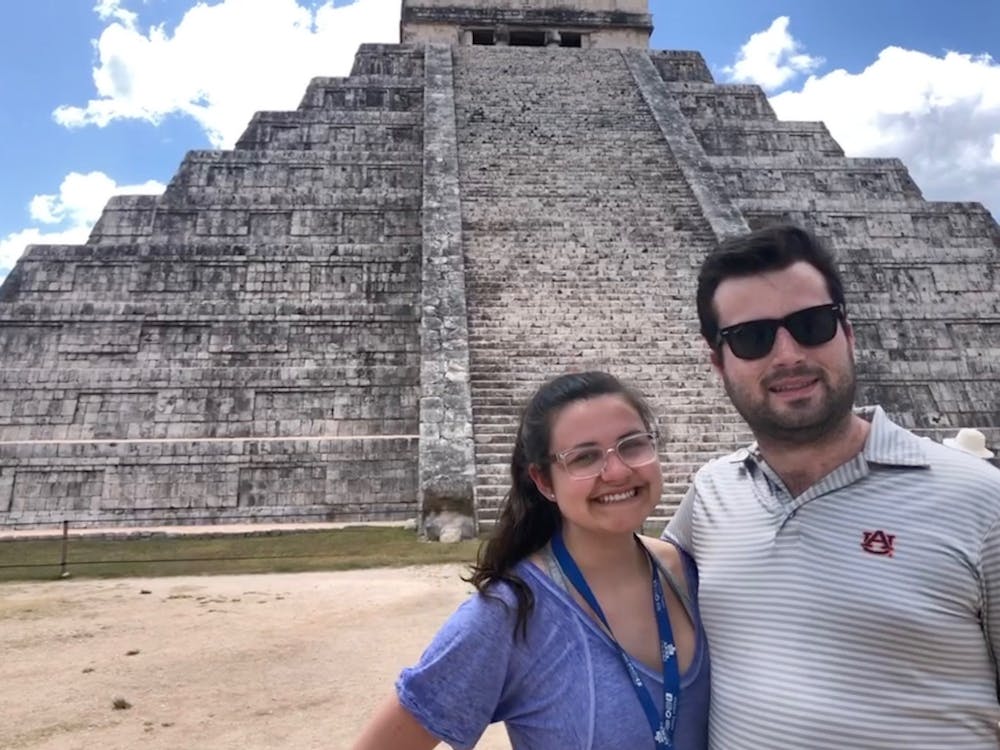Sunday, March 15.
It was karaoke night at the bar in Cancun, Mexico. Julia Creech and her boyfriend, Ken Ward, were exhausted from the sun, their fingers wrinkled by the Caribbean Sea. They stood there in the night, listening to a local sing “Thriller” and strain his throat as he reached higher and higher for the perfect pitch.
Creech, 22, senior in political science, had canceled their cruise trip across the Caribbean, which was the couple’s original plan for spring break. Some medical experts had advised against people taking cruises, and Creech listened to them.
The first American had died from COVID-19 about a week and a half before she first stepped foot on the sand that now clung to her sandals as the chorus kicked in and the crowd cheered.
“Cause this is thriller, thriller night.”
The stage lights beamed on the performer while Creech and everyone around her sang louder.
Before her flight had taken off to Cancun, she had cleaned her seat with wet wipes. She washed her hands after touching anything in the Hartsfield-Jackson Atlanta International Airport. A day after arriving in Mexico, Auburn University announced it was suspending in-person instruction until at least April 10.
“If spring break had been one week later, I wouldn’t have gone to Mexico,” she said. “Everything was changing so quickly.”
In 2009, Creech was one of an estimated 49 million people in the U.S. who got the H1N1 virus and later developed pneumonia. Creech fully understood, she said, the fear of contracting something new.
“And no one’s gonna save you from the beast about to strike.”
The man sang on. This was their final night in Mexico. She was sunburned and ready to go back to the hotel to sleep. They were going home tomorrow.
Before she went to bed there were no cases of COVID-19 in Cancun, and it remained so when she awoke the next day, at least according to official numbers from the Secretariat of Health, the Mexican government's health department.
“I remember feeling really exhausted when we got back to the room, and I guessed it was just from being in the sun,” Creech said.
She went to bed.
The coronavirus was already in her body, multiplying. It was conquering one more cell, infecting one more person.
In one week, she’d become the first Auburn student confirmed to have COVID-19.
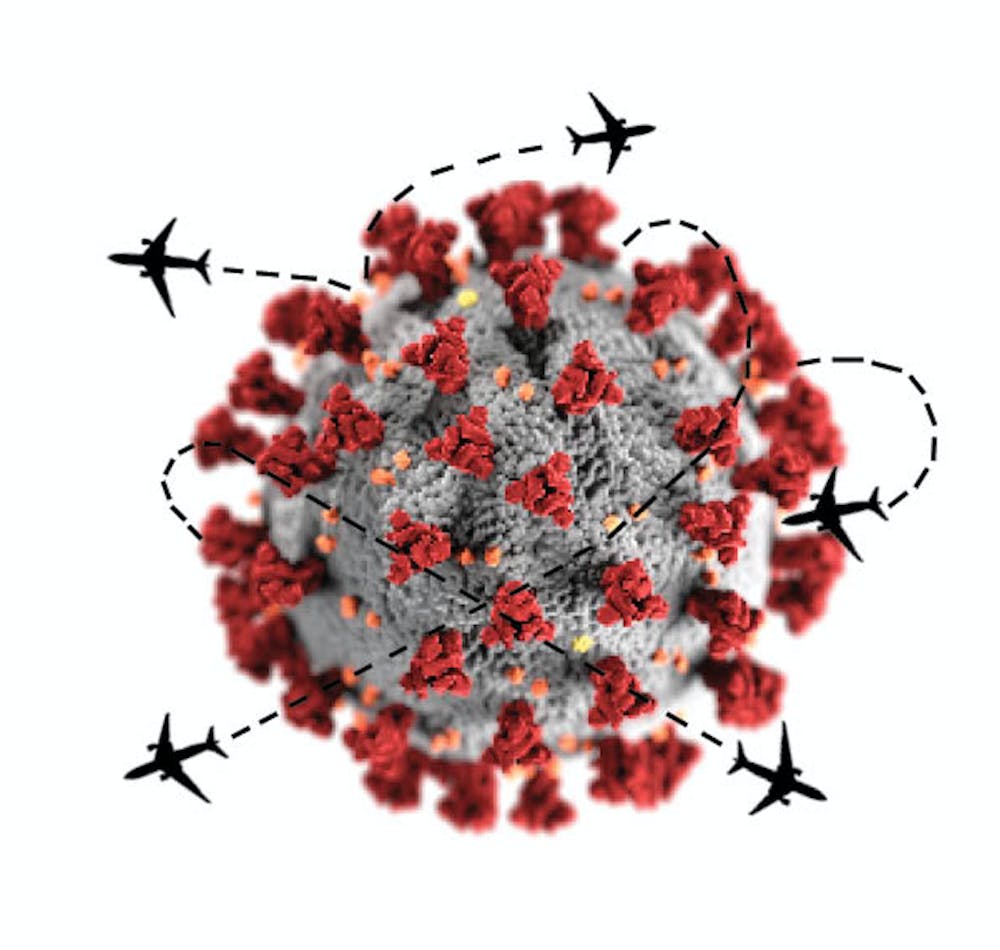
As COVID-19 spreads through Alabama, health experts are asking people to practice social distancing and stay home.
Monday, March 16. One case in Lee County.
The first sign was the chills. As Creech and Ward flew back home, she felt her energy dip more and more. Their layover was in Baltimore, Maryland.
“I was dreading coming back to the states because everything was starting to shut down,” Creech said.
She felt chills the whole flight. People on the plane were wearing masks.
“We got to Baltimore at 6 p.m., and it was like a ghost town,” she said. “I could not believe how empty it was. … That’s when the gravity of the disease hit me.”
It was a cool 44 degrees outside. A half-moon was starting to rise, and “the streets were just empty” as Creech searched with her boyfriend for a place to eat.
They landed in Atlanta late Monday night. Creech felt unbelievably tired. It was probably all the travel, she told herself. Students had just concluded their first day of online classes. It was midnight when they got back to Auburn.
Tuesday, March 17. Three cases in Lee County.
She couldn’t sleep because of her fever. It was 1 a.m. on Tuesday, and her forehead felt intensely warm. She laid in her apartment, burning.
“It was a serious fever, and my whole body was aching,” Creech said. “I just could not, for the life of me, go to bed.”
Later that morning, Creech called her mother, who is a health care provider in Nashville, Tennessee.
Like many, Creech knew the symptoms of COVID-19. She’d seen the countless graphics from news organizations and the CDC. She knew having a fever could mean having the coronavirus, but still, “there was just no way” it was in her system, she said, no way she would become one of the confirmed cases in Alabama, or one more figure, one more person, that would be shrunk to a dot on a chart, a piece of a bar graph, a reason to turn Lee County a darker shade of red on a map because, breaking, here was another person with the novel disease in Alabama.
She picked up the phone and called mom.
If she wanted peace of mind, her mom said, then she should call the hotline.
She dialed +1 (888) 264-2256.
“We would like to test you because we think you could have it, but we don’t have a kit available for you right now,” Creech recalled them saying.
The person on the line said they’d call when a kit was available.
“At that point, I didn’t even care,” Creech said. “I just laid in bed, trying to get through the day.”
Her whole body was pulsing and aching, and the chills worsened. She decided to self-quarantine herself for as long as she felt sick and didn’t know what was wrong.
Later that day, someone from the hotline called her back. They told her to head to East Alabama Medical Center on Wednesday morning. The hospital had opened a drive-through testing center. Creech would be one of 50 people with symptoms that EAMC would check for the coronavirus — just on Wednesday alone.
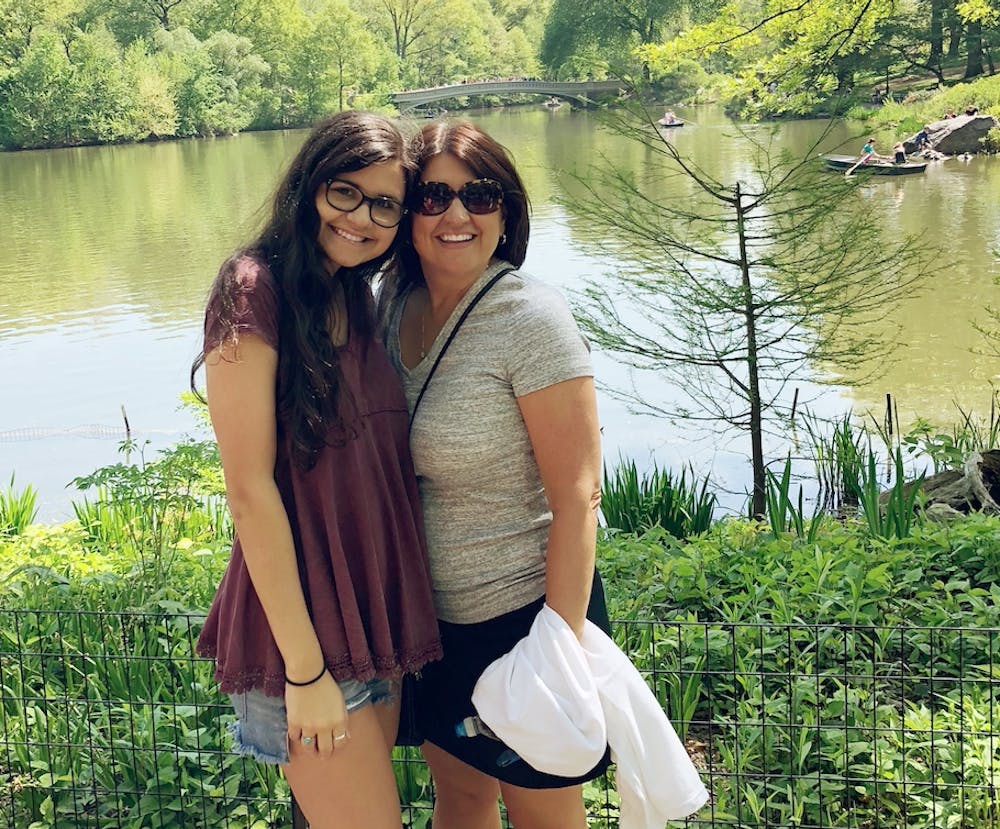
Julie Creech, left, will graduate in May with a degree in political science.
Wednesday, March 18. Eight cases in Lee County.
Creech pulled in between two rows of orange cones. She had been instructed to keep her windows rolled up. A man asked her to hold up a piece of paper confirming her appointment time. She noticed he looked to be in his 60s and had no mask on.
He asked her to drive toward the white tent down the street.
She wondered if people had mistakenly rolled their window down and put the man in danger, all because they couldn't hear what he was saying. She wondered if the hospital was already running out of masks.
Creech snaked her way through the cones and saw nurses wearing full protective gear.
They had been tasked with one of the most dangerous jobs in the country. Everything inside that space felt radioactive, Creech said. She pulled up next to a nurse and rolled her window down. She could hear car engines drumming outside.
“Don’t touch the piece of paper,” the nurse told Creech as she rolled down her window to read the waiver. She could only see the nurse's eyes. “Sign it, and hang on to the pen.”
The nurse said to look straight and not at her. A needle-thin rod was inserted in both of her nostrils. Her eyes got watery.
“All set,” the nurse said.
Creech drove back to her apartment, her nose more sniffly than before.
“I kept thinking of the symptoms I didn’t have, like the dry cough,” she said.
But she could not avoid what she felt. Her mind was occupied by her fever and nothing else.
Thursday, March 19. 10 cases in Lee County.
Friends and family asked if she’d heard back, and her answer remained the same all day: no.
“I told my friends, ‘I think I’m going to be surprised either way — if it’s positive or negative,’” Creech said.
If she didn’t have the coronavirus, then she had no clue what was wrong with her.
“I’d never felt sick like this before,” she said. “It’s the strangest virus.”
She’d feel fine for an hour, then utterly ill the next four. But the aching is what crushed her the most. Her whole body felt weak and throbbed with pain. Her fever was beginning to lessen, but it was there nonetheless, and her energy was the lowest she thinks it's ever been.
“It’s just horrible,” she said. “I wouldn’t wish this upon my worst enemies.”
She’d watch people who tested positive Skype in on TV and explain how they felt to news anchors.
That’s me, she thought to herself, waiting.
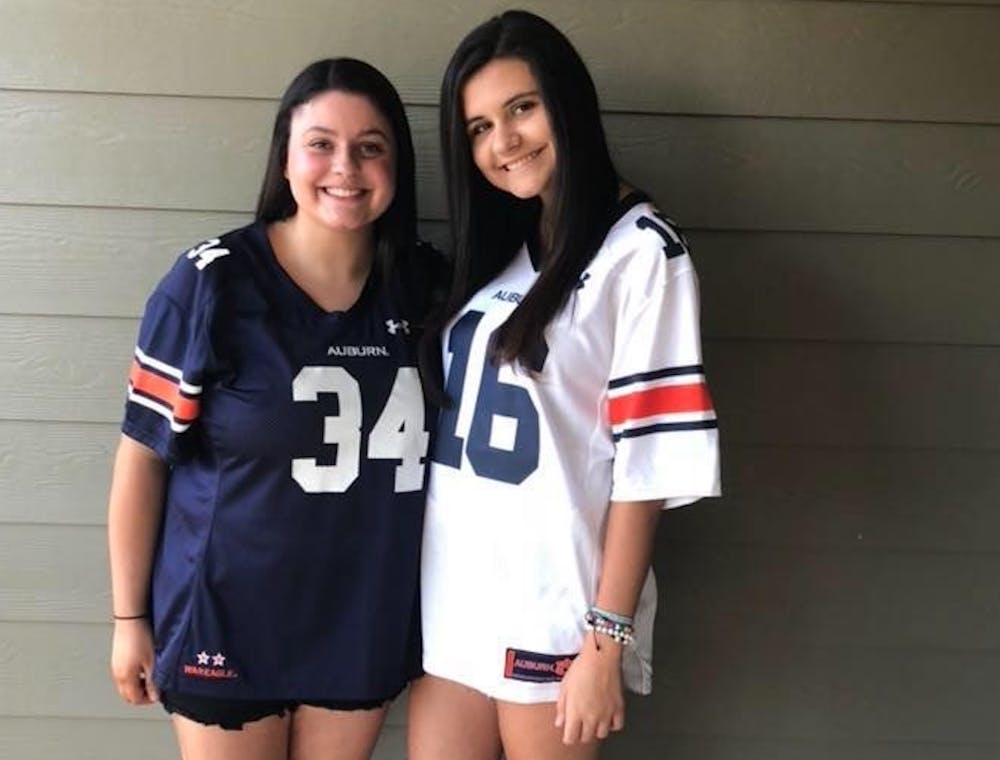
Julia Creech, right, is from Nashville, Tennessee.
Friday, March 20. 11 cases in Lee County.
The call came around 8:30 p.m. A doctor from EAMC was on the phone.
“I’m aware you tested the other day for COVID-19,” Creech recalled the doctor saying.
She interrupted him by accident.
“Oh, no — I’m really scared,” she told him.
“Well, listen, you don’t have to be scared, but you did test positive,” he said.
He told Creech the Alabama Department of Public Health would call her soon to ask about where she’d been recently.
“I think when you’re sick, you just want answers,” she said. “I thought, ‘At least now I know what’s going on with my body.’”
She thanked the doctor and hung up. It was almost impossible to sleep, she said. Her boyfriend, Ward, was beginning to have a dry cough.
Saturday, March 21. 12 cases in Lee County.
She was the 12th. Friends left groceries outside her door. Her mother promised her that she’d make a full recovery. Creech somehow felt worse. All of her symptoms worsened.
“I just kept thinking, ‘Why me?’” she said.
The virus coursed through her system, and she felt every blow. She ate soup and stayed in bed.
She wondered, with the world, when this would end.
Sunday, March 22. 16 cases in Lee County.
The ADPH told Creech she likely got COVID-19 at the airport before leaving for Cancun. She left on a Wednesday and started feeling symptoms on Sunday; many people start feeling sick five days from when the virus is in their system, they told her.
On social media, Creech saw students having house parties. She saw young people gathering for quarantine get-togethers.
“I was getting really upset looking at social media and seeing how many people were not taking this threat seriously,” she said. “I didn’t want them to be in my shoes, stuck in bed and feeling awful.”
Sunday marked the first day Creech was having difficulty breathing. Never in her life had she felt like this.
Monday, March 23. 19 cases in Lee County.
Fred Kam, medical director for Auburn University’s Medical Clinic, called Creech early Monday morning. He told her she was the first Auburn University student to test positive.
“I kind of knew that I’d be the first, but it still didn’t register with me,” she said. “I thought I’d taken every precaution I could.”
She saw an article from The Plainsman. “Breaking: AU student tests positive for the coronavirus,” it read. Kam never disclosed who the student was. Friends who knew it was Creech sent screenshots of the article to her.
“People who I hadn’t heard from in forever would say, ‘I heard through the grapevine that you have coronavirus,’” Creech said.
In his previous statement to The Plainsman, Kam said the student with coronavirus “traveled out of the country for spring break” and was “not hospitalized,” but instead “in self isolation.”
“I felt alone,” Creech said. “I did feel in isolation in every way.”
On Facebook, she read what people sharing the article were saying. Some blamed this anonymous student for having traveled out of the country — when, in fact, there was no ban at the time. Some said the U.S. shouldn't have allowed this student in — not knowing Creech is an American citizen.
“None of it really even bothered me,” she said.
The doctor from EAMC who told her she had COVID-19 also said they were having trouble communicating the importance of staying at home to young people.
“I realized that I’m an example of this virus now, so I need to tell people, ‘This is a real virus, and it actually can hurt and kill people,’” she said. “We all need to be smart about this.”
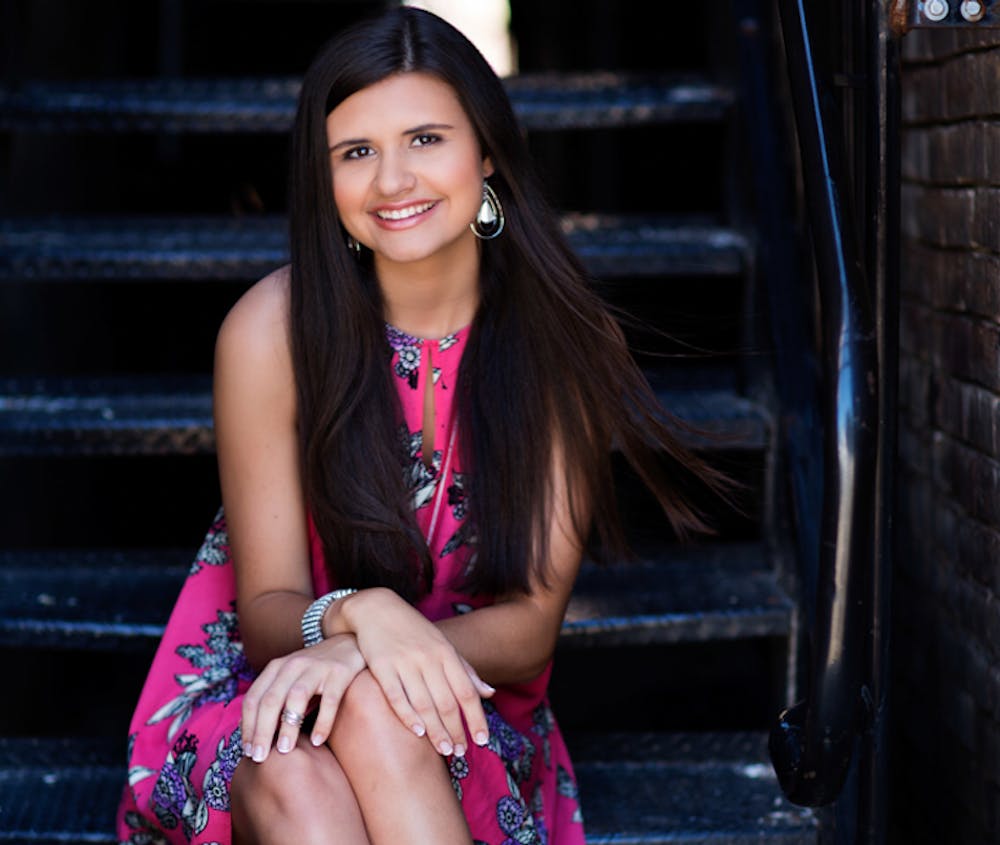
Tuesday, March 24. 26 cases in Lee County.
Creech found out Ward had COVID-19. He had been tested and told all in one day.
She decided she’d write a post on Facebook explaining how she got the disease and to tell people to stay home.
“I really hesitated on going public with this for many reasons, but I’ve decided it is what’s best for me and for my local community as we continue to face unknown times,” she wrote. “Speaking now from someone who has it, I hope that this encourages all of you to stay home. Any one of us can get this virus, and while some may not show symptoms, they can pass on this virus to someone.”
Saturday, March 28. 56 cases in Lee County.
Slowly, Creech and Ward are recovering. As Alabama's total number of cases climbs to 700, as people begin to die at the hospital that gave Creech her prognosis, she is overcome with gratitude, aware that she could’ve been placed on a ventilator had her immune system failed, aware that intensive care units are being filled across the world with people suffering from the virus still present in her system.
“I think some people my age feel like this virus isn’t a big deal — like only their grandparents are at risk,” she said.
So her message to other students is simple: Stay home or this virus will rupture your health — just as it has hers.
Do you like this story? The Plainsman doesn't accept money from tuition or student fees, and we don't charge a subscription fee. But you can donate to support The Plainsman.
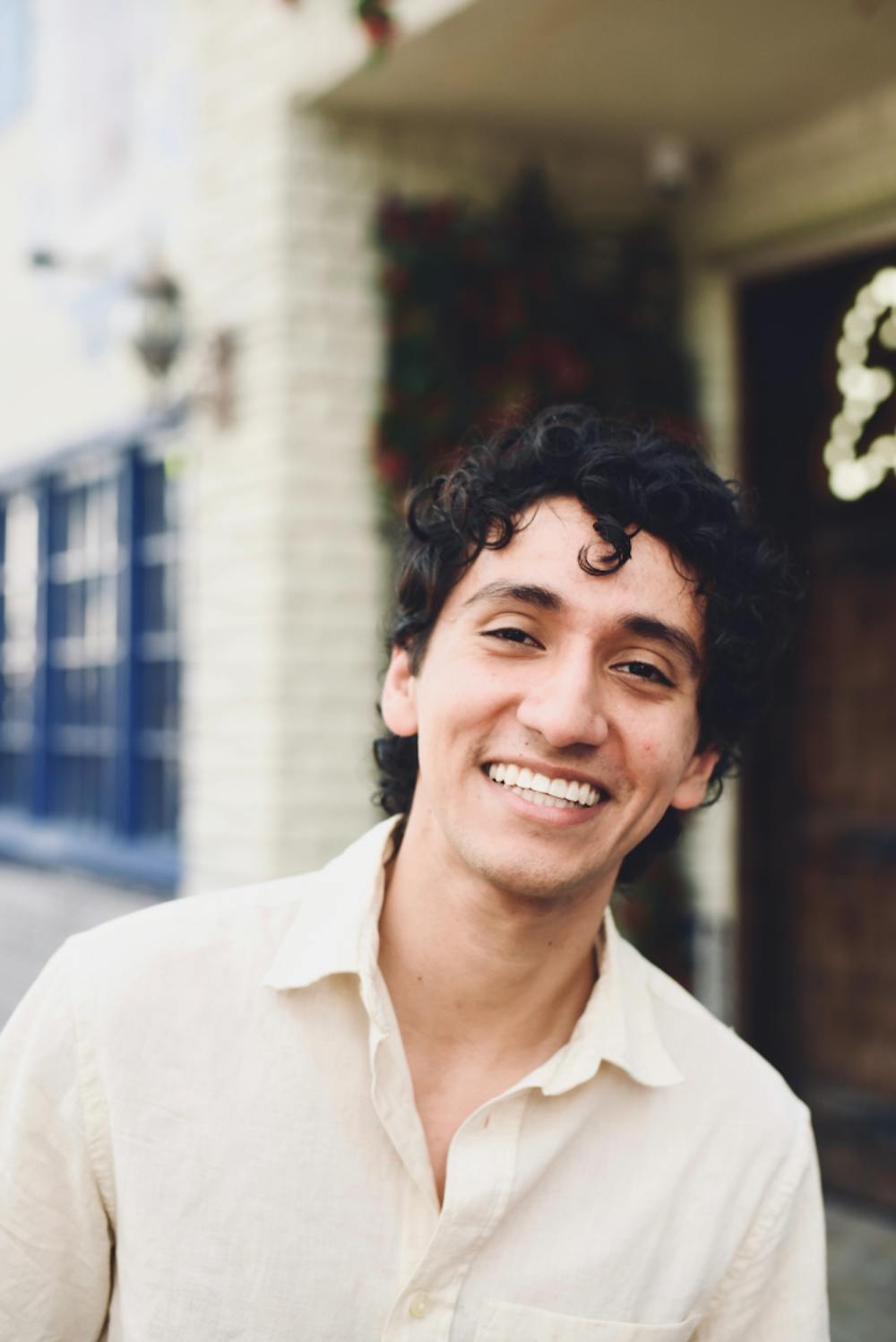
Eduardo Medina, senior in journalism, is the editor-in-chief of The Auburn Plainsman.

